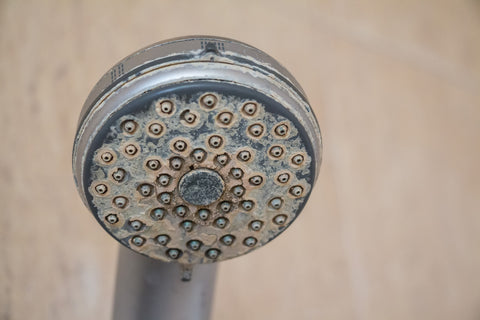
Hard and soft water differ in their mineral content, which can have a strong effect in several different ways. Hard water is rich in calcium and magnesium, while soft water lacks these minerals. Though beneficial for the human metabolism in reasonable quantities, “hard water” is often “too much of a good thing” – if you have hard water, it will cause plenty of problems, including:
- Building up incrustations inside your pipes, reducing water flow.
- Encrusting the inside of teapots and other vessels, making it harder to heat the contents and thus raising your energy bills.
- Interfering with the action of soap, making it hard to work up suds, and possibly causing sticky, dull, “cruddy-feeling” hair.
- Creating unpleasant crusts and stains on bathtubs, sinks, dishes, and so forth.
Hard water isn't all bad, however – it does help to improve cardiovascular health, and brings some necessary minerals into your system. However, vitamins with magnesium, and some calcium-containing foods such as cheese or milk, can substitute quite well for this, allowing you to soften your water without losing the positive effects of calcium and magnesium intake.
The Water Quality Association of the United States defines hard water as any which has more than one grain per gallon (1 GPG) of dissolved minerals in it. Moderately hard water is defined as that with 3.5 to 7 GPG of minerals, and is probably the lowest threshold at which a water filter to remove excess mineralization becomes necessary. You can probably obtain local mineralization information from your water utility company or local health department.
The surest way to remove minerals from your water is to use a reverse osmosis system. This removes practically everything from water except the water itself. Some systems even feature a special cartridge that adds a reasonable amount of calcium and magnesium back into your water, ensuring that it is healthy and tastes good!
Though this might appear paradoxical at first glance – removing all calcium and magnesium, and then putting a certain amount of those minerals back in – it is actually logical from the viewpoint of control. The naturally occurring minerals are in uncontrolled quantities, and it is often easier to remove them wholly rather than partially filtering them out. Then, a carefully chosen amount of mineralization is added back in.
Water softening filters need not be quite this rigorous or involved to achieve the desired effect, however. Ion exchange resin media achieve partial softening of water, and can be used at the inlet to the home as a whole house filtration system if necessary. Molecules of calcium, magnesium, and iron attach to the resin, and thus are removed from the water stream. Some filters include a brine tank to refresh the resin and prolong the filter cartridge's effective life.
Whatever the precise solution, you have plenty of water filter options to help combat excessively hard water in today's advanced home water purification market.

